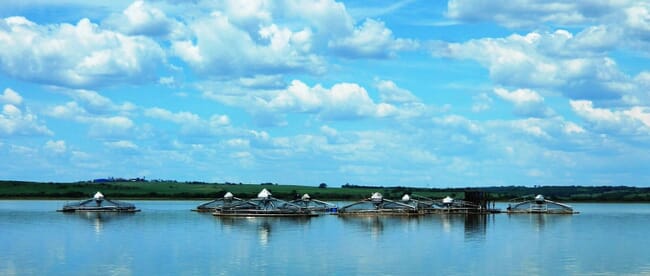The FAO report, Social and economic performance of tilapia farming in Brazil, details how aquaculture production in Brazil increased 14 percent annually (or 12 percent in terms of farmgate value), from 13,000 tonnes (worth $56 million) in 1987 to 595,000 tonnes (worth $1.5 billion) in 2017, making the country “a regional aquaculture powerhouse”, which contributed 20 percent of Latin America and the Caribbean’s aquaculture production in 2017.

Tilapia have been crucial in this increase, contributing to nearly half the country’s aquaculture production tonnage in 2017. And the new document examines tilapia farming technology and practices in Brazil, dissecting the tilapia value chain, evaluating the sector’s social and economic performance, discussing the importance of proper governance to the sector development, and highlighting potentials, issues, constraints and challenges in the development of tilapia farming or aquaculture in general in Brazil.
The report also puts Brazilian tilapia production in a global context, noting that the fish are “the most popular aquaculture species item, farmed in over 120 countries or territories worldwide”. Indeed, the report explains, global tilapia aquaculture production grew 11 percent annually (or 13 percent in terms of farmgate value) over the past three decades, from 0.3 million tonnes (worth $304 million) in 1987 to 5.9 million tonnes (worth $11 billion) in 2017.
The authors of the report point out that changes in agribusiness in Brazil over the past few decades have been profound, while technological innovations have elevated the country into one of the largest food exporters in the world, which “promises a bright future for tilapia farming or aquaculture in general”.
However, they add: “Institutional instability and regulatory uncertainties pose a great challenge to the development of the tilapia industry. Improving the situation would entail the public sector and the private industries working together to create an enabling environment for Brazil to fully harness its great comparative advantages in tilapia farming.”
In addition, the report concludes: “The social dimensions of aquaculture development deserve more attention. In-depth, participatory communication and consultation involving all stakeholders in the tilapia value chain are needed to delineate a road map to help Brazil’s tilapia aquaculture, or fish farming in general, develop into an economically viable, environmentally sustainable and socially responsible sector.”




